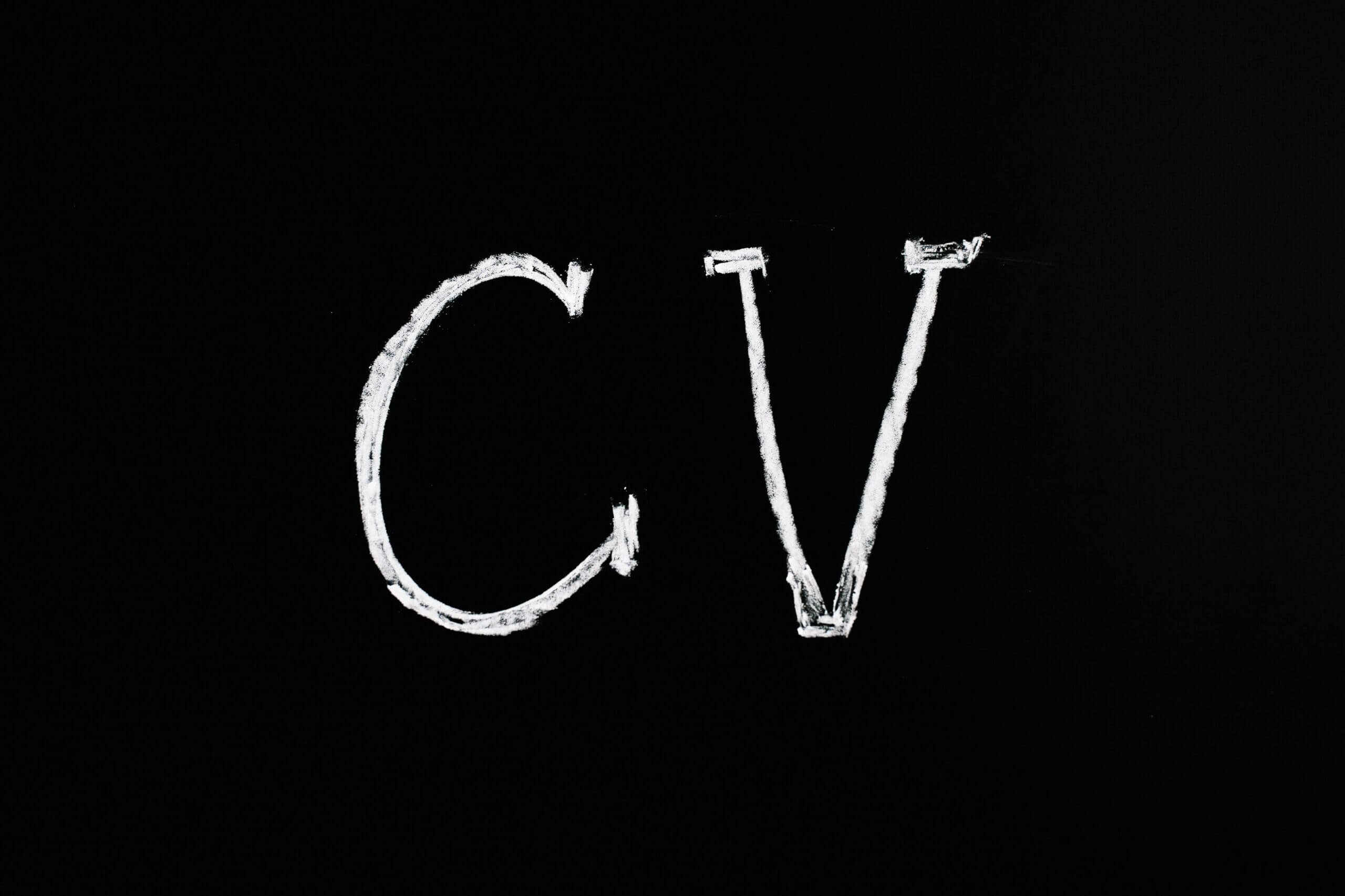Role Title: Don’t Make These Resume Mistakes
Employer:
Required Experience:
Location:
Date published: 24 October 2024
Writing a resume can feel like navigating a maze. You’re trying to showcase your skills, experience, and personality, all in a format that’s concise yet impactful. It’s easy to make mistakes, but it’s also easy to avoid them once you know what to look out for. This blog post is designed to help you dodge common resume mistakes, giving you actionable and insightful tips to ensure your resume gets noticed for the right reasons.
Whether you’re an experienced professional or just starting out, the last thing you want is for your resume to get tossed aside due to avoidable errors. Let’s dive into some of the most common mistakes and, more importantly, how to fix them.
1. Using Passive Voice: How Active Voice Strengthens Your Resume
One of the most common mistakes job seekers make is using passive language in their resumes. Passive voice weakens the impact of your accomplishments, making them sound as if they just happened without any effort on your part. For example, writing “The project was completed by the team” doesn’t sound nearly as powerful as “Led the team to complete the project.”
Active voice brings energy to your resume. It emphasises that you took action, drove results, and were directly involved. Active verbs like “developed,” “managed,” “coordinated,” and “achieved” immediately tell recruiters what you’ve done and how you did it. They can visualise your role in the process, which strengthens your application.
Imagine a hiring manager reading dozens of resumes. The ones using passive language come across as flat and uninspiring. Your resume, on the other hand, uses active voice to make your contributions crystal clear. The hiring manager sees you as someone who gets things done, and that’s exactly what you want.
2. Overcomplicating Your Language: Simplifying While Staying Professional
Another trap people fall into is overcomplicating their language. It’s tempting to use big words and jargon to sound more professional, but this often backfires. Instead of coming across as knowledgeable, you risk sounding pretentious or, worse, confusing.
Let’s face it—hiring managers don’t have time to decode complex sentences. They’re scanning your resume for key information, so make it easy for them. For example, instead of writing “Executed multi-faceted operational restructuring strategies,” say “Led company restructuring, improving efficiency by 20%.”
The simpler your language, the more accessible your resume becomes. This doesn’t mean dumbing it down—it means being clear and direct. Remember, your goal is to communicate your value quickly and effectively.
3. Using Complex Sentences: The Power of Brevity
Long, winding sentences may work in novels, but not in resumes. You want your resume to be a quick, easy read, not a long-winded story. Use short, impactful sentences that get straight to the point.
Take this sentence: “In my previous role, I was responsible for overseeing and managing the completion of multiple projects simultaneously, ensuring that all deadlines were met and that quality standards were maintained.” Now, look at this shorter version: “Oversaw multiple projects, met deadlines, and maintained quality standards.” The latter is just as informative but far easier to digest.
Brevity is your friend when it comes to resume writing. Each bullet point should pack a punch, clearly stating what you did and how it benefitted the organisation.
4. Dense, Blocky Paragraphs: Switch to Concise Bullet Points
One surefire way to make your resume harder to read is to present it in long, blocky paragraphs. No one wants to sift through a wall of text. Bullet points are your best friend when it comes to readability. They make your accomplishments stand out and allow recruiters to quickly scan your resume.
Each bullet point should represent a unique achievement or responsibility. Start with a strong action verb and keep it concise. For example:
- Increased client retention by 15% by implementing a new customer feedback process.
- Reduced operational costs by 10% through process improvements.
Notice how these bullet points are clear and specific. They tell a story of success without overwhelming the reader with too much detail.
5. Too Much Text, Not Enough White Space
We’ve all heard that first impressions matter, and that’s especially true for your resume. A cluttered, text-heavy resume can be a turn-off before the hiring manager even reads a word. On the flip side, a resume with enough white space looks clean and professional.
White space helps guide the reader’s eye and makes your resume feel more inviting. Don’t cram your resume with unnecessary information. Focus on your key accomplishments and leave room for white space. It will make your resume visually appealing and easier to read.
6. Misunderstanding Resume Length: When to Go Beyond One Page
The one-page resume rule has been drilled into our heads for years, but it’s not always applicable. If you have extensive experience, don’t be afraid to go beyond one page—just make sure every word counts.
However, if you’re early in your career, stick to one page. You don’t need to include every job you’ve ever had or every skill you’ve learned. Focus on what’s most relevant to the job you’re applying for.
Remember, it’s about quality, not quantity. A two-page resume packed with achievements is much better than a one-page resume filled with fluff.
7. Bad Alignment of Sections: The Importance of Section Symmetry
Visual symmetry matters more than you think. A resume that is poorly aligned with sections scattered all over the place is hard to follow. It reflects poorly on your attention to detail and organisational skills.
Ensure that your headings, bullet points, and margins are all aligned consistently. Use bold for headings and maintain a uniform font size. This small change can drastically improve the overall readability of your resume and make it look more professional.
8. Failure to Prioritise Information: Structuring for Maximum Impact
Your resume should be a reflection of your priorities. The most important information should be at the top, catching the recruiter’s attention right away. If your most recent job is the most relevant to the position you’re applying for, it should come first. If your education is more impressive than your work experience, then make it a focal point.
Don’t bury the lead. Think of your resume like a news article—the most important information comes first, followed by supporting details.
9. Lack of Numbers: Quantifying Your Achievements for Impact
Numbers speak louder than words. Anyone can say they “improved sales,” but when you say you “boosted sales by 25%,” you’re giving the recruiter a concrete example of your success. Quantifying your achievements makes your resume more credible and gives hiring managers a clear picture of your contributions.
Wherever possible, use numbers to show the impact you’ve had. Whether it’s increasing revenue, reducing costs, or growing your client base, numbers are key to demonstrating your value.
10. Too Much Focus on Tasks, Not Results: Shifting to Achievements
One of the biggest mistakes candidates make is listing tasks instead of achievements. Saying you were “responsible for managing a team of five” is fine, but it doesn’t tell the recruiter what you accomplished in that role.
Instead, focus on results. How did your team perform under your leadership? Did you increase efficiency? Did you improve customer satisfaction? Employers are more interested in what you achieved than what you were responsible for.
11. Failing to Highlight Promotions: Showing Career Progression
Career progression is one of the best indicators of a successful professional, yet so many candidates fail to highlight it. If you were promoted within a company, make it clear. Show how your role evolved and what you accomplished at each stage.
For example, instead of simply listing two different positions at the same company, structure it like this:
- Project Manager (Promoted from Associate)
- Led team of 10 to deliver projects on time and within budget.
- Increased project efficiency by 20%.
Showing career progression demonstrates that you’re capable of growth and that others have recognised your value.
12. Not Showcasing Problem-Solving Skills: Framing Yourself as a Solution
Employers hire to solve problems. Whether it’s increasing sales, improving processes, or managing projects, they want to know you can help. Make sure your resume positions you as a solution to their problems.
For example, if you’ve improved processes that saved time or money, or if you’ve helped a company overcome challenges, make that clear. Employers are looking for candidates who can help them solve their biggest issues, so frame yourself accordingly.
13. Neglecting to Update for Every Job: Why One Resume Won’t Fit All Applications
One of the biggest mistakes you can make is sending out the same resume for every job application. Each role is different, and your resume should reflect that. Tailor your resume for each position by highlighting the experience and skills that are most relevant.
This doesn’t mean rewriting your resume from scratch each time, but small adjustments—like changing keywords, tweaking your summary, or emphasising different skills without overselling—can make a big difference.
14. Lack of Keywords: How to Optimise Your Resume for Search Engines
In today’s digital world, many companies use applicant tracking systems (ATS) to filter resumes before they even reach a human. To ensure your resume gets past these systems, you need to use the right keywords.
Look at the job description and note the specific skills, qualifications, and keywords the employer is looking for. Incorporate these into your resume, but don’t overdo it. Use them naturally, and ensure they align with your actual experience.
15. Objective vs. Summary Statement: Choosing the Right Intro for Your Resume
Should you use an objective statement or a summary statement at the top of your resume? The answer depends on your experience level. If you’re just starting out, an objective statement can work well to explain what you’re looking for. But if you have experience, a summary statement is more effective.
A summary allows you to highlight your key skills and achievements right off the bat. It’s a quick snapshot of who you are as a professional and what you bring to the table.
16. Failure to Include a Cover Letter: Why It’s Still a Vital Part of the Process
Many job seekers skip the cover letter, assuming it’s outdated or unnecessary. But for many employers, a well-crafted cover letter can make all the difference. It’s your opportunity to personalise your application, explain why you’re a good fit for the role, and give context to your resume.
A resume gives the facts; a cover letter tells the story. Don’t miss the chance to connect with the employer on a more personal level. Click here to learn more about how to craft a cover letter that will catch any hiring manager’s eye.
17. Skipping Soft Skills: Balancing Technical and Interpersonal Qualities
While technical skills are essential, soft skills are equally important in today’s job market. Employers want candidates who can collaborate, communicate, and adapt. Make sure your resume showcases both your hard and soft skills.
For example, if you’ve led teams, managed conflicts, or facilitated communication between departments, include that on your resume. These skills are just as valuable as technical expertise.
18. Not Emphasising Transferable Skills: Applying Skills Across Industries
If you’re changing careers or industries, emphasising transferable skills is key. Transferable skills are those that can be applied in different roles, such as leadership, communication, and problem-solving.
For example, if you’ve managed projects in one industry, you can likely manage projects in another. Highlight these skills to show employers that you’re adaptable and capable of succeeding in a new environment.
19. Listing Too Many Skills: How to Prioritise the Right Ones
While it’s important to list your skills, don’t overdo it. Too many skills can dilute your resume and make it seem unfocused. Instead, prioritise the skills that are most relevant to the job you’re applying for.
Quality over quantity is the key here. Focus on the skills that will make the biggest impact and demonstrate your ability to excel in the role.
20. Leaving Out Freelance or Contract Work: Highlighting All Types of Experience
Freelance and contract work are just as valuable as full-time roles, yet many candidates leave them off their resumes. If you’ve done freelance work or had contract positions, include them. These roles often demonstrate initiative, flexibility, and a wide range of skills.
Don’t shy away from highlighting non-traditional work experiences—they can be a great way to show your versatility.
21. Not Mentioning Volunteer Experience: Showing Well-Rounded Experience
Volunteer experience can be just as important as paid work, especially if it’s relevant to the role you’re applying for. It shows that you’re dedicated, compassionate, and willing to go the extra mile. If you’ve volunteered in any capacity, include it on your resume.
For example, if you’ve organised events, led teams, or managed budgets as a volunteer, these are all valuable skills that employers will appreciate.
22. No Mention of Career Breaks: How to Explain Time Off Constructively
Taking time off from work is becoming increasingly common, whether it’s for personal reasons, travel, or further education. If you’ve had a career break, don’t try to hide it. Instead, explain how you used that time productively.
For example, you might have taken a course, volunteered, or pursued personal development. Framing your career break positively shows that you’re proactive and resourceful, even when you’re not in a traditional work setting. Click here to learn more about how you can turn these breaks into something that strengthens your resume.
23. Ignoring Online Presence: Linking Relevant Digital Portfolios or Websites
In today’s digital age, having an online presence is a must. Whether it’s a LinkedIn profile, personal website, or digital portfolio, make sure you include links to your online work. This gives employers a deeper insight into your skills and personality.
For creative roles, a portfolio is essential. It’s a chance to show your work in action and give employers a tangible example of what you can do. Don’t just talk about what you’ve done—show it. Link to projects, designs, campaigns, or articles that demonstrate your expertise.
24. Unclear Professional Goals: Writing a Focused Summary
Your resume should give employers a clear sense of who you are and what you’re looking for. If your goals are unclear, it can be confusing for the reader. A focused summary at the top of your resume can help.
This summary should highlight your key skills, experience, and what you hope to achieve in your next role. It’s a quick way to let employers know if you’re a good fit for their organization.
25. Ignoring ATS Compatibility: How to Format for Applicant Tracking Systems
As mentioned earlier, many companies use Applicant Tracking Systems (ATS) to filter resumes before they reach human eyes. To ensure your resume gets past these systems, avoid using overly complex formatting, images, or graphics. Instead, stick to a clean, simple format with clear headings and bullet points.
Use standard fonts and include keywords from the job description to increase your chances of passing through the ATS.
26. Including Salary Expectations: Why This is a Big No-No on Resumes
Finally, never include salary expectations on your resume. Discussing salary too early in the process can be a turn-off for employers, as it shifts the focus from your skills and experience to money.
Save salary discussions for the interview stage, once you’ve had a chance to demonstrate your value and understand the role better.
Key Takeaways
Now that we’ve covered the common resume mistakes, here are some actionable tips to implement immediately:
- Use Active Voice: Make your achievements sound powerful and intentional.
- Simplify Your Language: Be clear, concise, and direct.
- Use Bullet Points: Make your resume easy to scan by breaking up dense text.
- Quantify Your Achievements: Use numbers to demonstrate your impact.
- Tailor for Each Job: Customise your resume for every application.
- Include Keywords: Ensure your resume is ATS-friendly by using relevant keywords.
- Showcase Soft Skills: Balance technical expertise with interpersonal qualities.
- Don’t Overdo It: Prioritise quality over quantity, whether listing skills or experience.
- Highlight All Experience: Include freelance, contract, and volunteer work.
- Provide Online Links: Share your digital portfolio or LinkedIn profile where appropriate.
By avoiding these common resume mistakes and implementing these tips, you’ll increase your chances of landing that next job. Happy job hunting!




